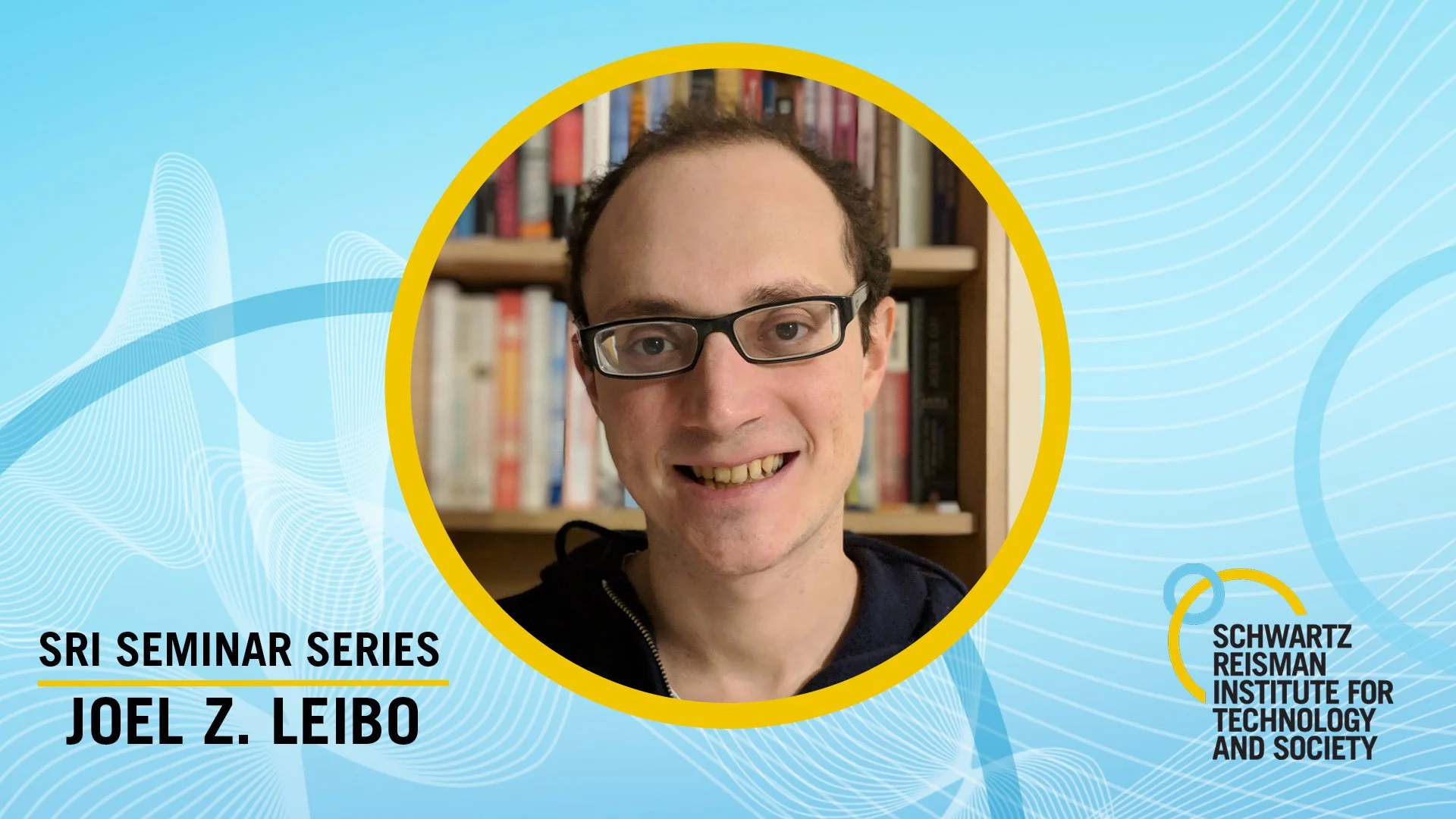
SRI Seminar Series: Joel Z. Leibo, “A pragmatic view of AI personhood”
What happens when AI begins to take on the roles—and responsibilities—of persons? Join Google DeepMind senior staff research scientist and visiting King’s College London professor Joel Z. Leibo for a pragmatic examination of AI personhood, exploring how flexible bundles of rights and obligations can help societies govern emerging AI agents without settling intractable debates about consciousness or mind.
Mutual Aid, Life, and Computation
Join us for an in-person conversation with Bruce Schneier and Blaise Agüera y Arcas on cooperation, complexity, and the future of intelligence.
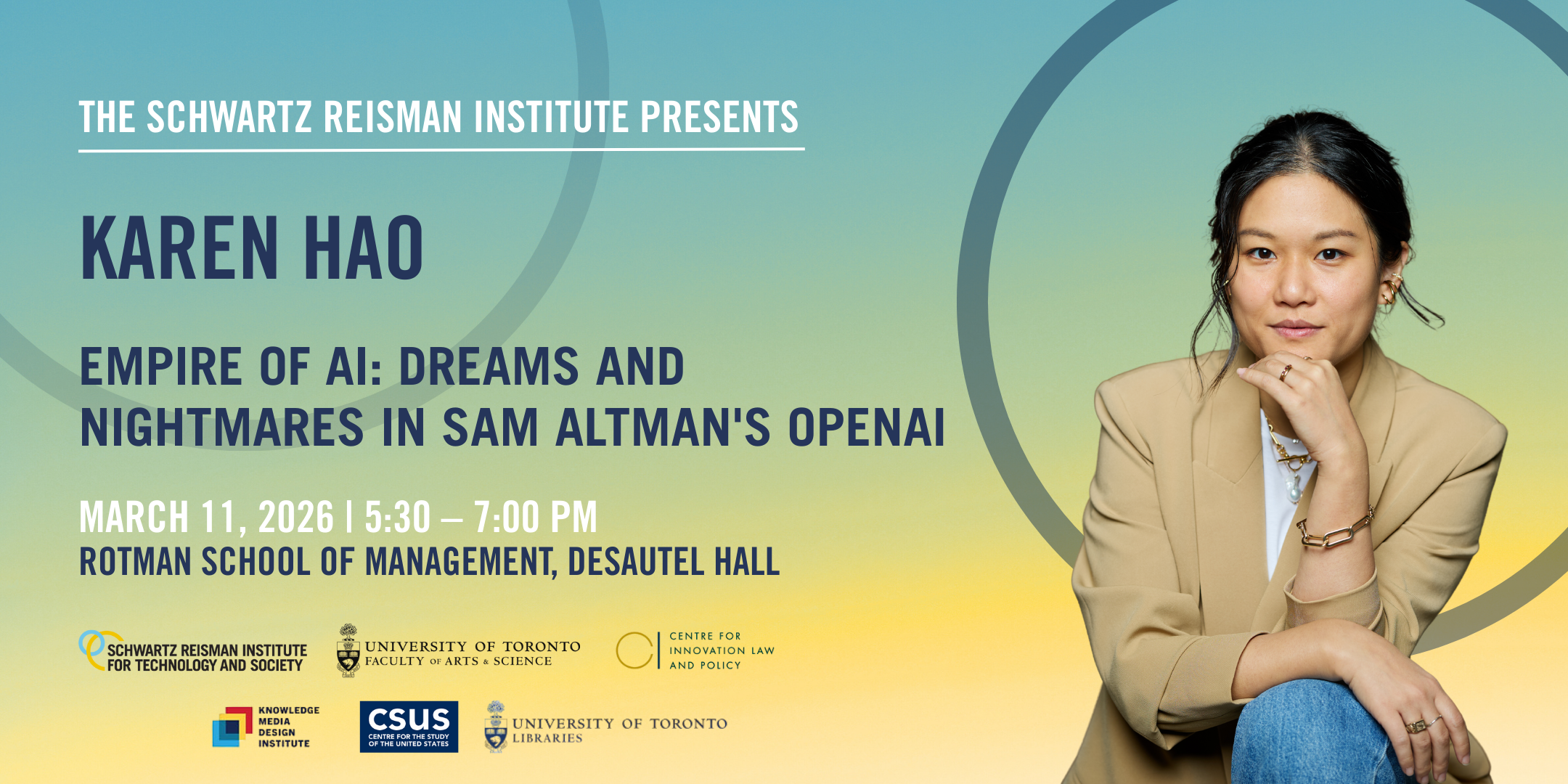
Empire of AI: Karen Hao
Join us for this in-person event as Karen Hao draws on her global reporting and insider access to discuss the implications of AI’s rapid deployment, the erosion of democratic norms, and the need to rethink how we design, govern, and distribute AI systems to support ongoing policy and public interest efforts aimed at ensuring AI benefits society broadly.

SRI Seminar Series: Zhijing Jin, “Emergent AI safety risks in multi-agent LLMs”
How can advanced AI systems reason, coordinate, and act responsibly in complex social settings? Join University of Toronto incoming assistant professor and Max Planck Institute research scientist Zhijing Jin for a high-level exploration of large language models, causal reasoning, and the foundations of responsible and trustworthy AI.

SRI Seminar Series: Kyle Mahowald, “How linguistics learned to stop worrying and love the language models”
How are large language models reshaping the study of human language itself? Join Kyle Mahowald (University of Texas at Austin) as he shows how filtered pretraining and mechanistic interpretability experiments can illuminate linguistic structure—offering fresh insights into how humans process language and why these models may be genuinely informative for core questions in linguistics.
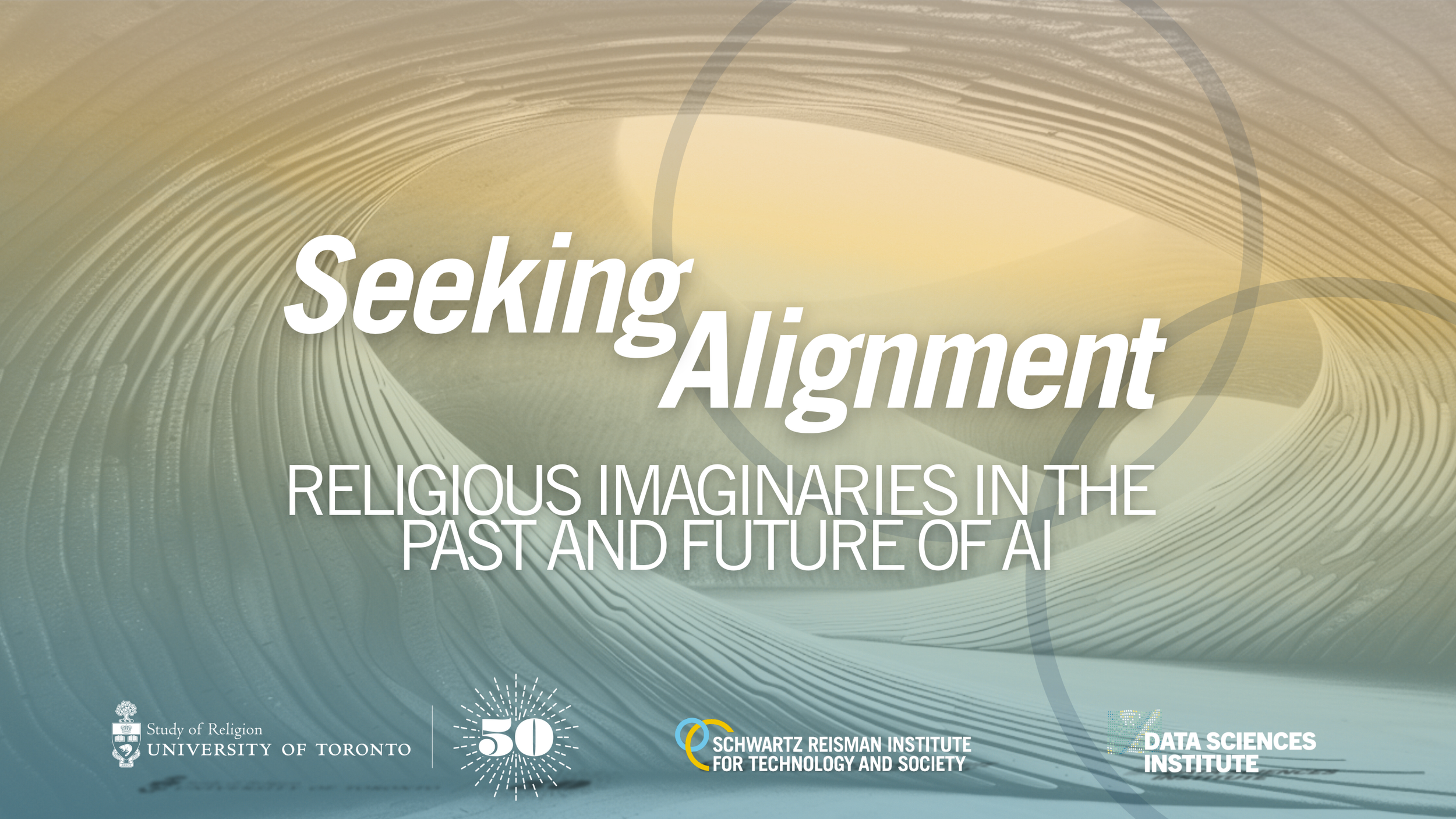
Seeking Alignment: Religious Imaginaries in the Past and Future of AI
Join us for this in-person event as the Seeking Alignment panel brings together scholars working in the study of religion, history of science, media theory, and computer science to consider how the religious pasts of AI shape the foretelling of its future.
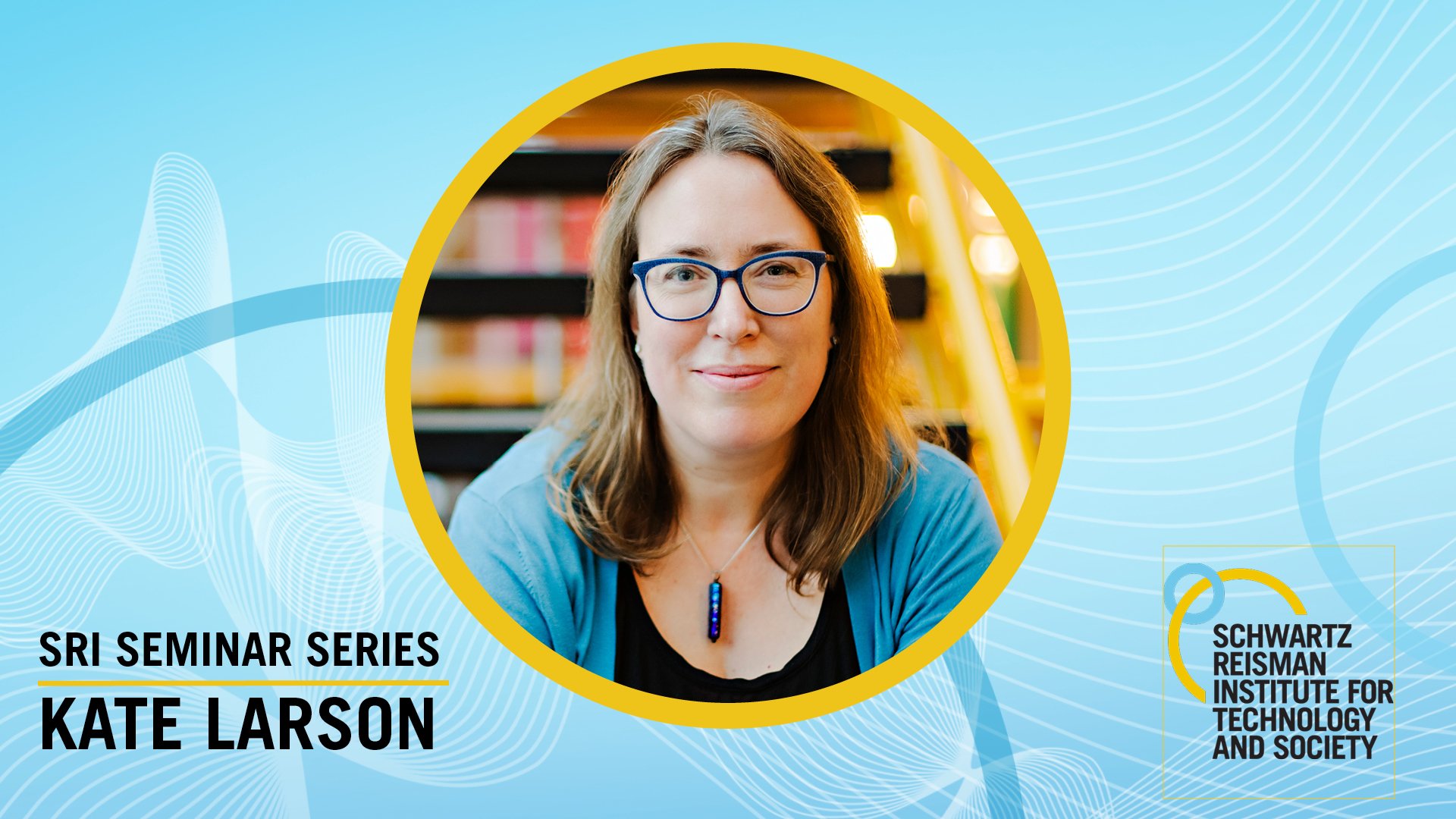
SRI Seminar Series: Kate Larson, “Who decides what AI values? New frontiers in fair and diverse alignment”
How can groups of intelligent systems learn to make decisions together? Join University of Waterloo professor and Google DeepMind research scientist Kate Larson for a high-level exploration of cooperation, collective decision-making, and the algorithmic foundations that shape how multi-agent AI systems interact, coordinate, and reach shared outcomes.

SRI Seminar Series: Mamatha Bhat, “Multi-agentic AI in healthcare to guide objective decision-making”
How can multi-agent systems enhance fairness and accountability in critical healthcare decisions? Join U of T’s Mamatha Bhat as she explores how multi-agentic AI could transform liver transplant selection by integrating clinical, ethical, and psychosocial reasoning—offering a transparent, data-driven approach that supports equitable and objective patient care.
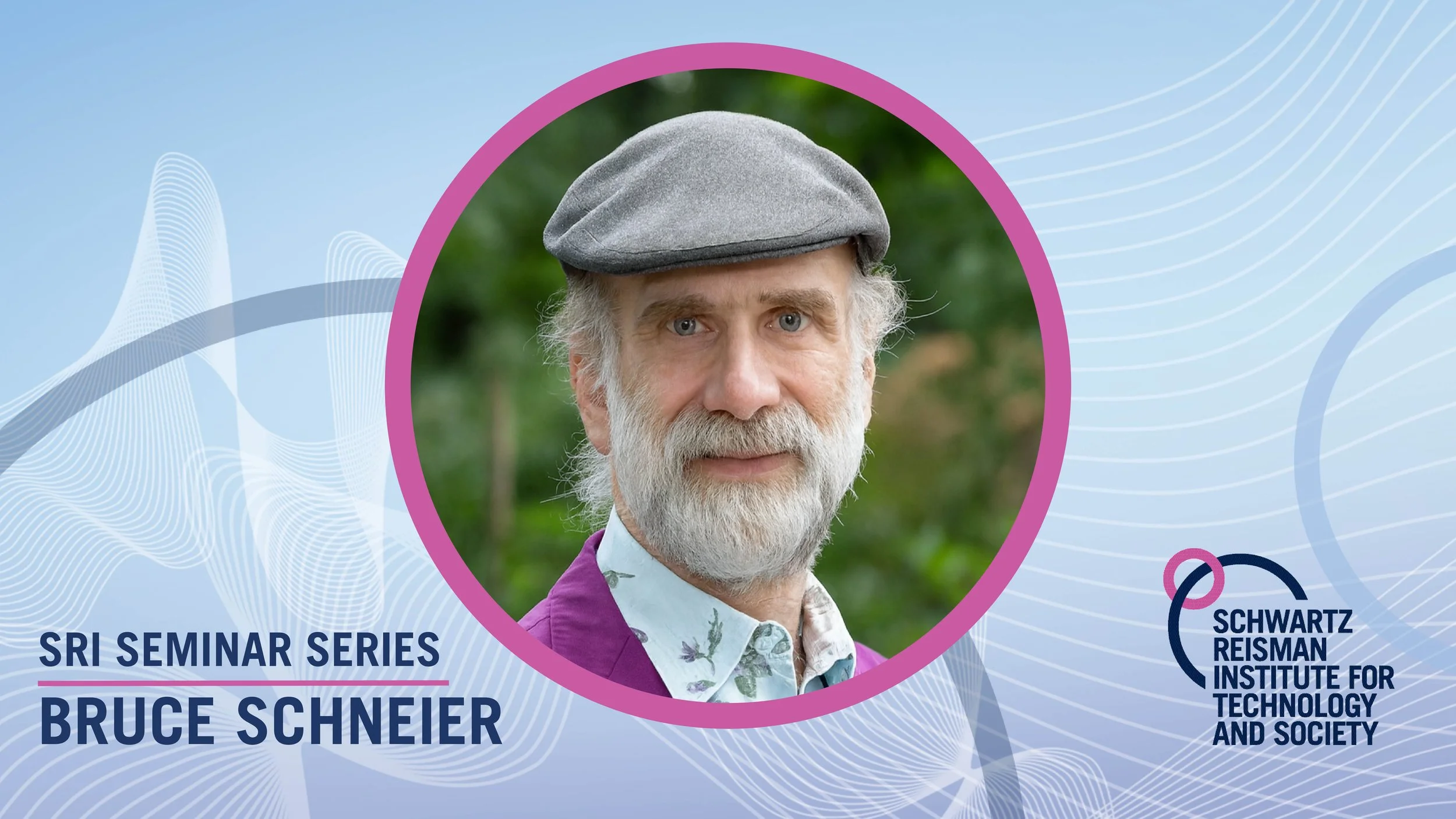
SRI Seminar Series: Bruce Schneier, “Integrous systems design”
What does it mean to design systems we can truly trust? Join SRI Visiting Senior Policy Fellow Bruce Schneier for a timely exploration of integrous systems design—why integrity has become the defining challenge of modern cybersecurity, and what it will take to build resilient digital systems, from AI agents to critical infrastructure, in the age of integrity.

SRI Seminar Series: Brad Knox, “Harmful traits of AI companions”
What makes an AI a good companion? Join UT Austin’s Brad Knox for a look at how reinforcement learning and human feedback are shaping the next generation of socially interactive agents—and what it takes to build AI that aligns with our values, needs, and relationships.

SRI Seminar Series: Saadia Gabriel, “Human in the machine: Towards community-grounded AI reasoning”
What does it take to build AI systems that strengthen, rather than strain, our information ecosystems? Join UCLA computer scientist Saadia Gabriel for an exploration of how language technologies convey factuality, intent, and potential harm—and how rigorous measurement, responsible design, and a deeper understanding of misinformation can support a more trustworthy, socially grounded digital world.

SRI Seminar Series: Saffron Huang, “Beyond the benchmark”
What does it take to build AI that truly serves the public good? Join Collective Intelligence Project researcher, technologist, and writer Saffron Huang for a look at how democratic participation, transparent system behaviour, and thoughtful governance can shape more human-centred AI—and how reimagining the institutions behind technology can help us live together better in an AI-driven world.
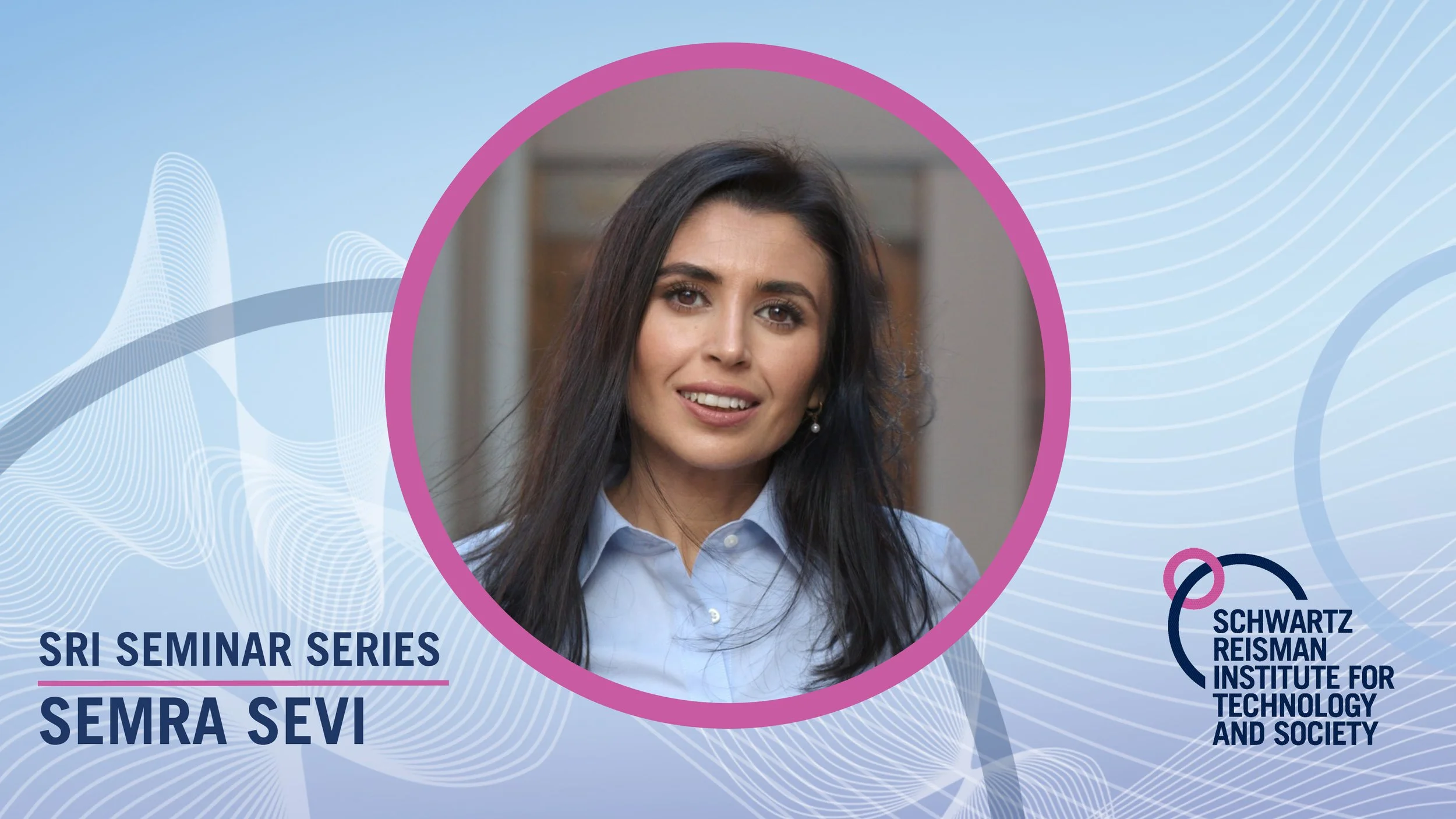
SRI Seminar Series: Semra Sevi, “Chatbot voting advice applications inform but seldom sway young unaligned voters”
Can chatbots help young voters better understand politics? Join the University of Toronto’s Semra Sevi as she presents new findings from experimental research on AI-powered voting aid applications—revealing how these tools boost political knowledge while raising questions about their broader civic impact.
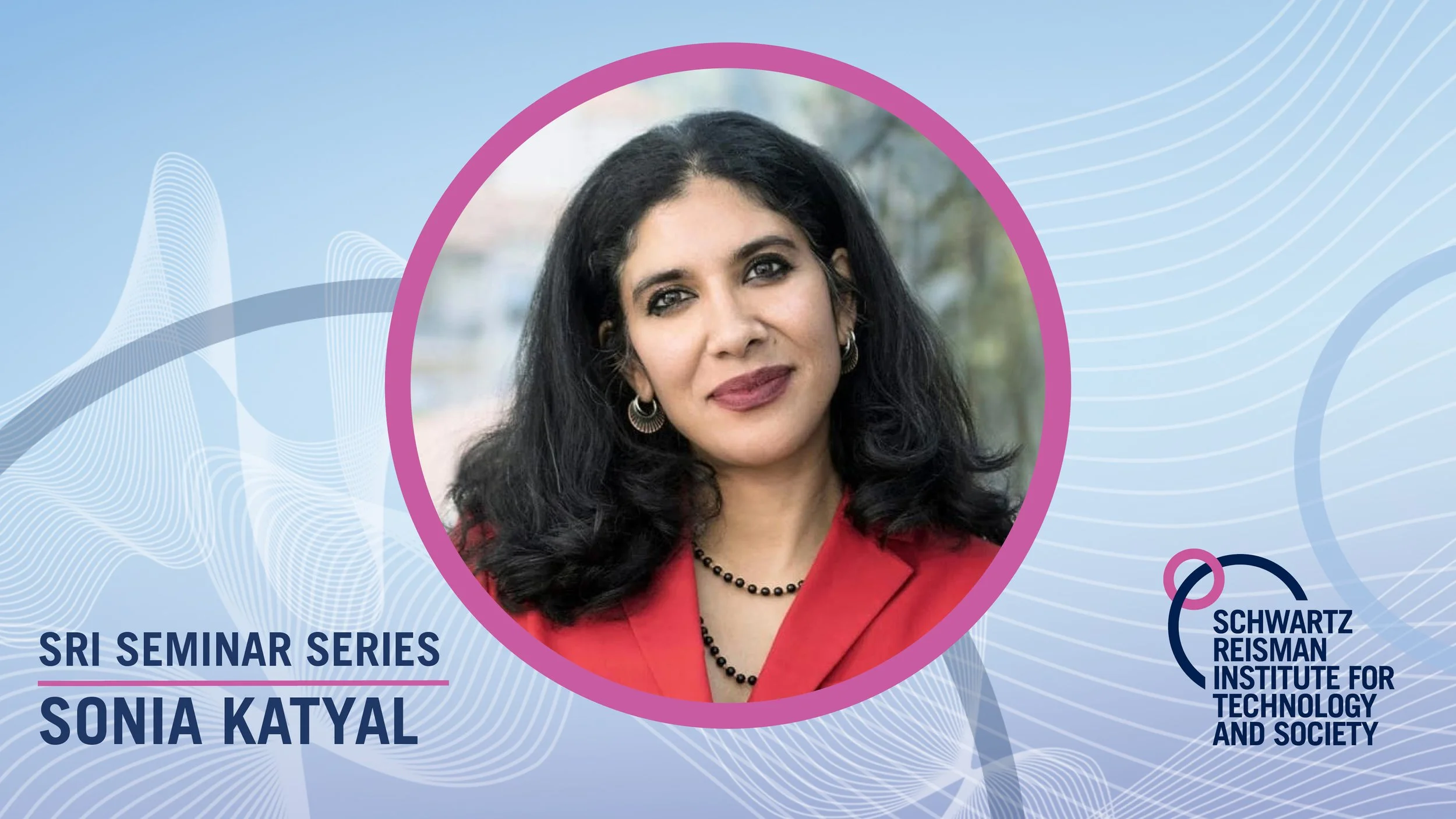
SRI Seminar Series: Sonia Katyal, “Art in walled gardens”
As generative AI reshapes the digital art world, who holds the keys to creativity? Join UC Berkeley’s Sonia Katyal for a provocative look at how contracts and private licensing are redefining the boundaries of creative freedom—threatening to turn culture itself into a walled garden.
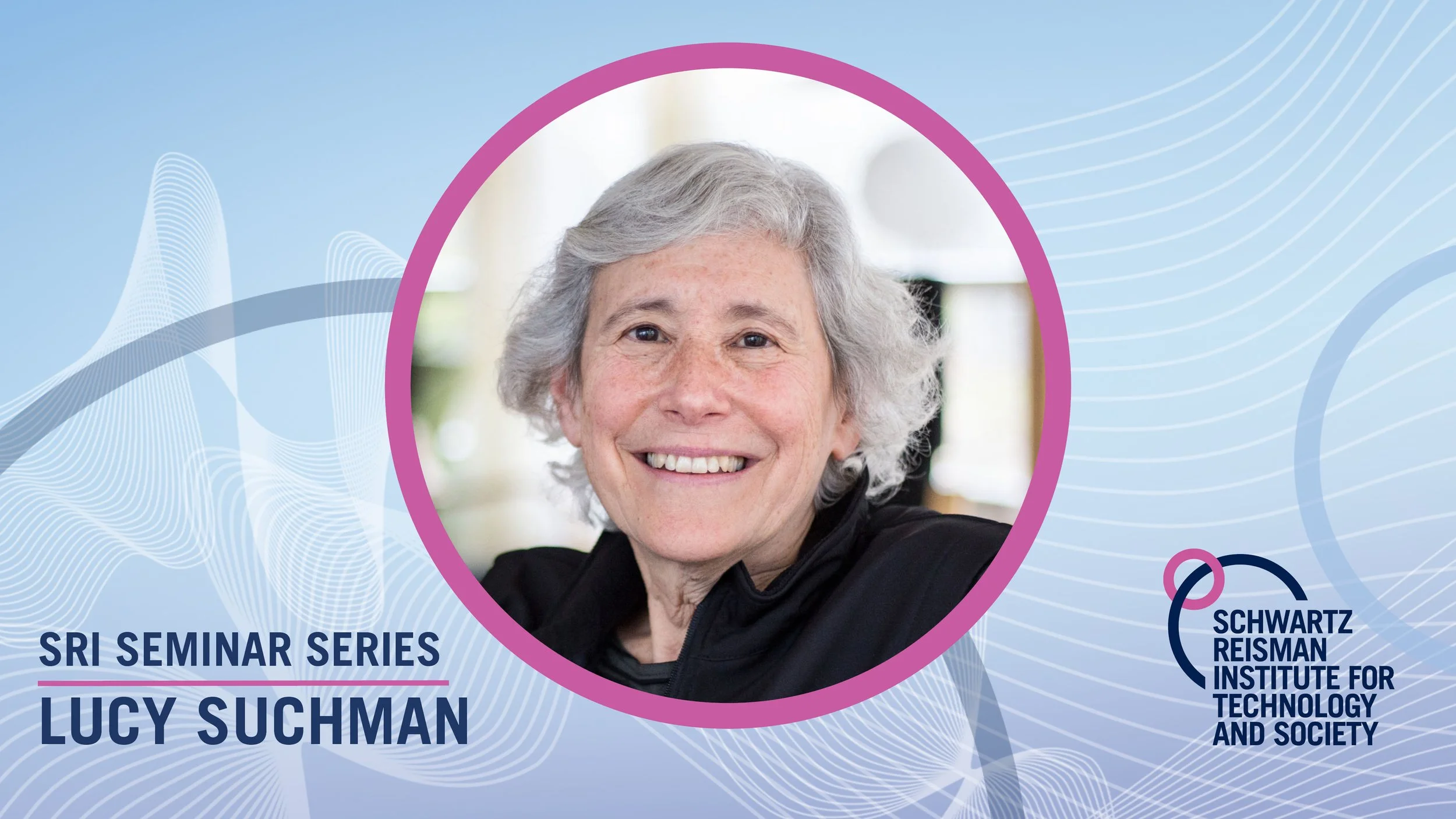
SRI Seminar Series: Lucy Suchman, “Closed worlds and the constitutive outsides of artificial intelligence”
What worldviews shape the rise of AI—and what escapes their grasp? Join Lucy Suchman, a pioneering scholar of human–machine relations, as she critically examines the militarized imaginaries underpinning AI’s development and invites us to consider alternatives beyond closed-world thinking.
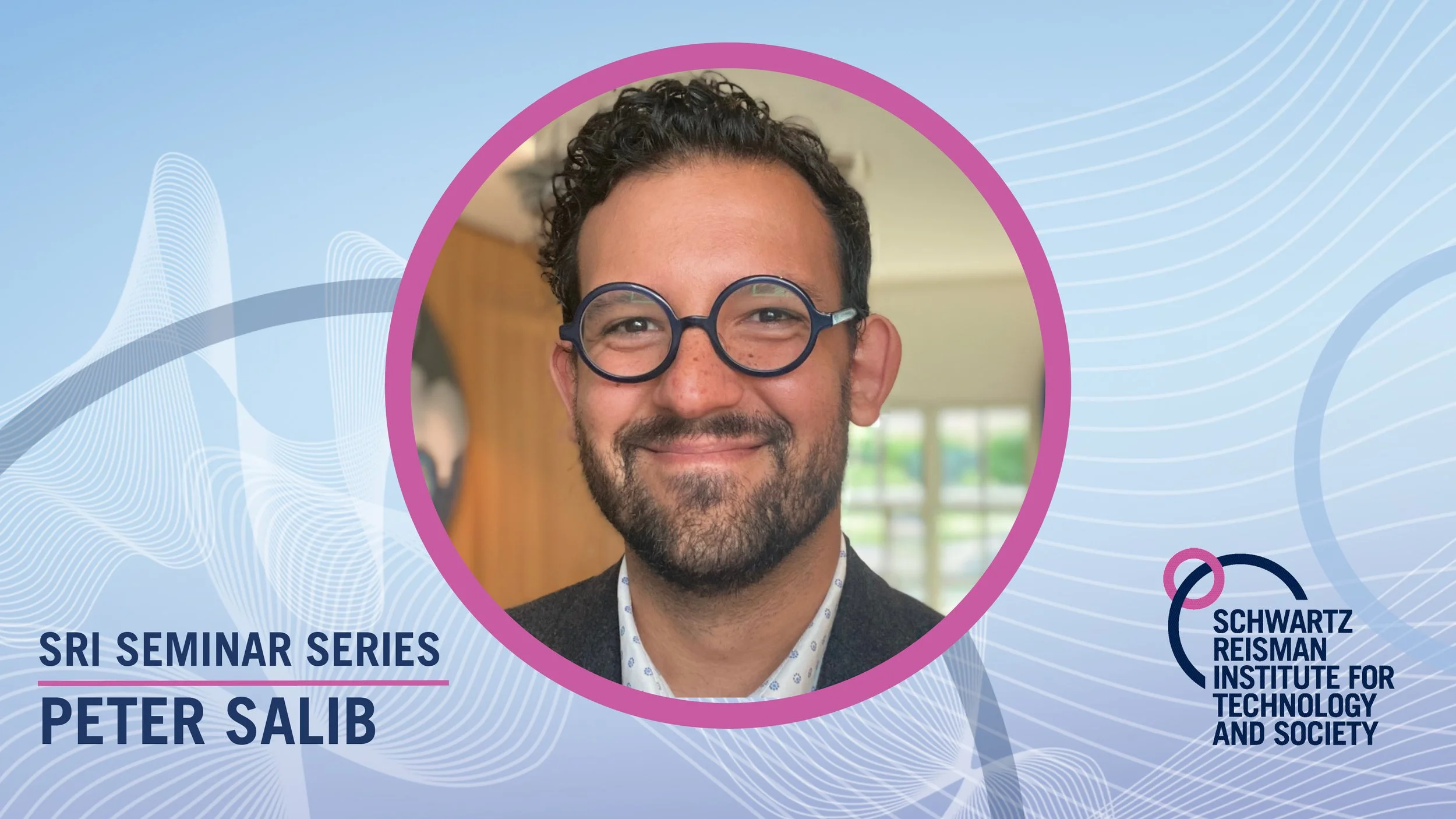
SRI Seminar Series: Peter Salib, “AI rights for human safety”
Could granting rights to AI make humans safer? Join the University of Houston’s Peter Salib as he explores how extending basic legal rights to AI systems—like the ability to contract, hold property, and seek remedies—could reduce the risk of catastrophic human–AI conflict and foster cooperative, peaceful coexistence.

The Moral Circle: A Book Talk with Jeff Sebo
Jeff Sebo urges expanding our moral community to include animals and some AIs, transforming ethics beyond human exceptionalism.
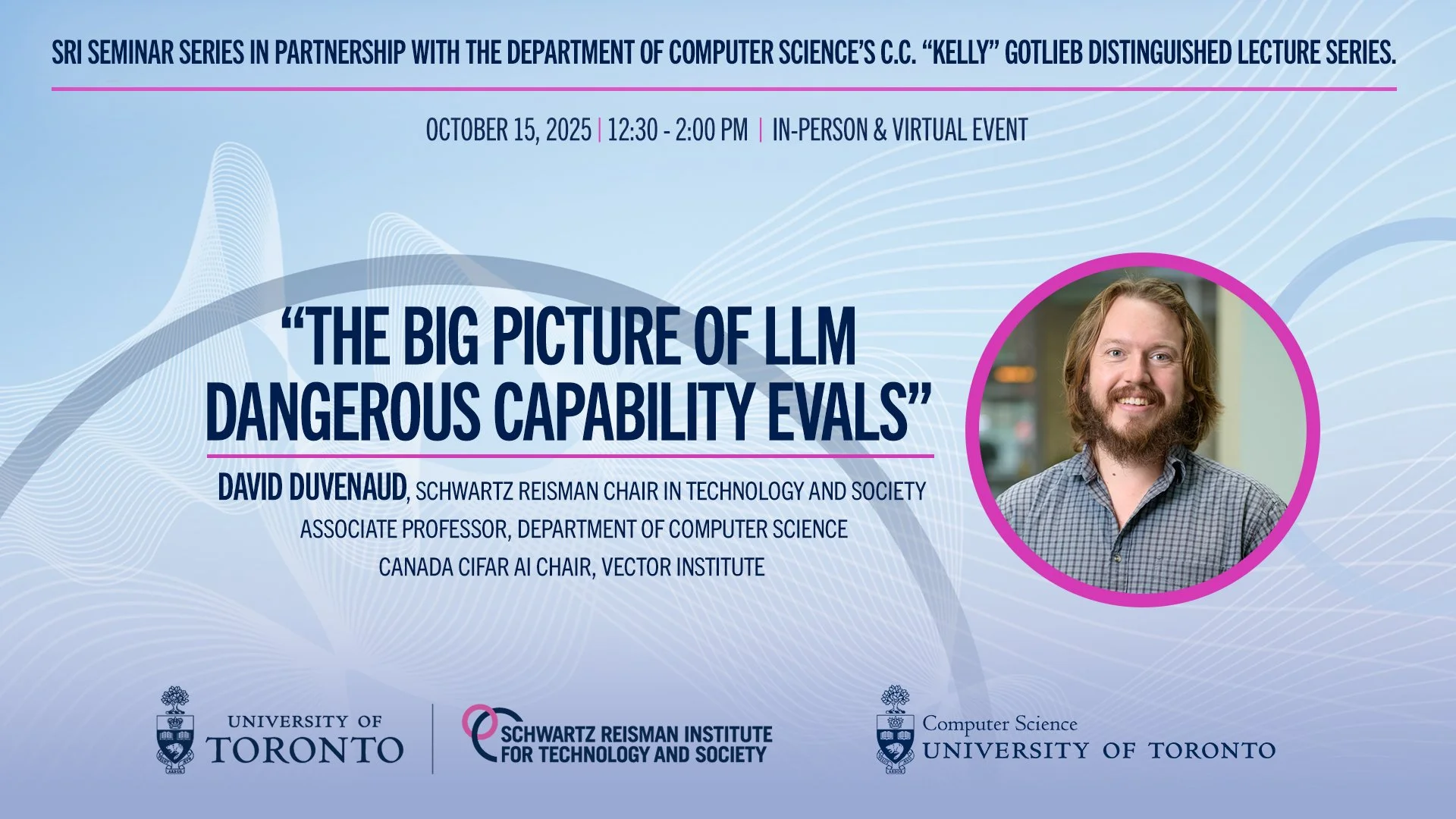
SRI Seminar Series: David Duvenaud, “The big picture of LLM dangerous capability evals”
Join David Duvenaud, University of Toronto computer science professor and leading AI safety researcher, for a timely discussion on emerging risks from advanced AI systems—and how institutions might govern the future of artificial general intelligence. This special in-person presentation is jointly presented as part of the Department of Computer Science’s C.C. “Kelly” Gottlieb Distinguished Lecture Series.
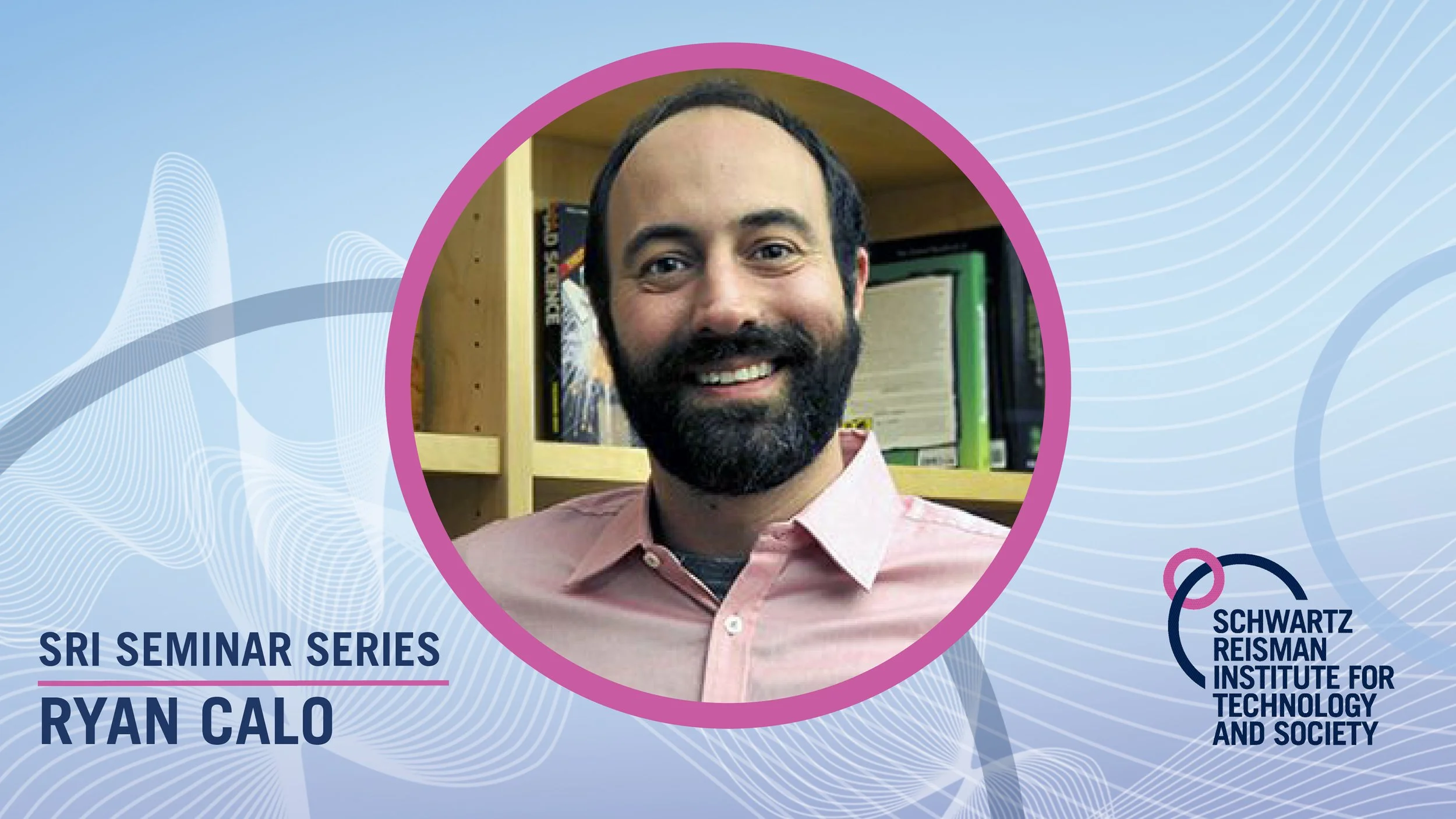
SRI Seminar Series: Ryan Calo, “Law and technology: A methodical approach”
How can law rise to meet the challenges of rapidly evolving technology? Join the University of Washington’s Ryan Calo as he introduces a step-by-step methodology for analyzing and challenging technology to serve society’s needs, drawing on insights from his new book Law and Technology: A Methodical Approach.
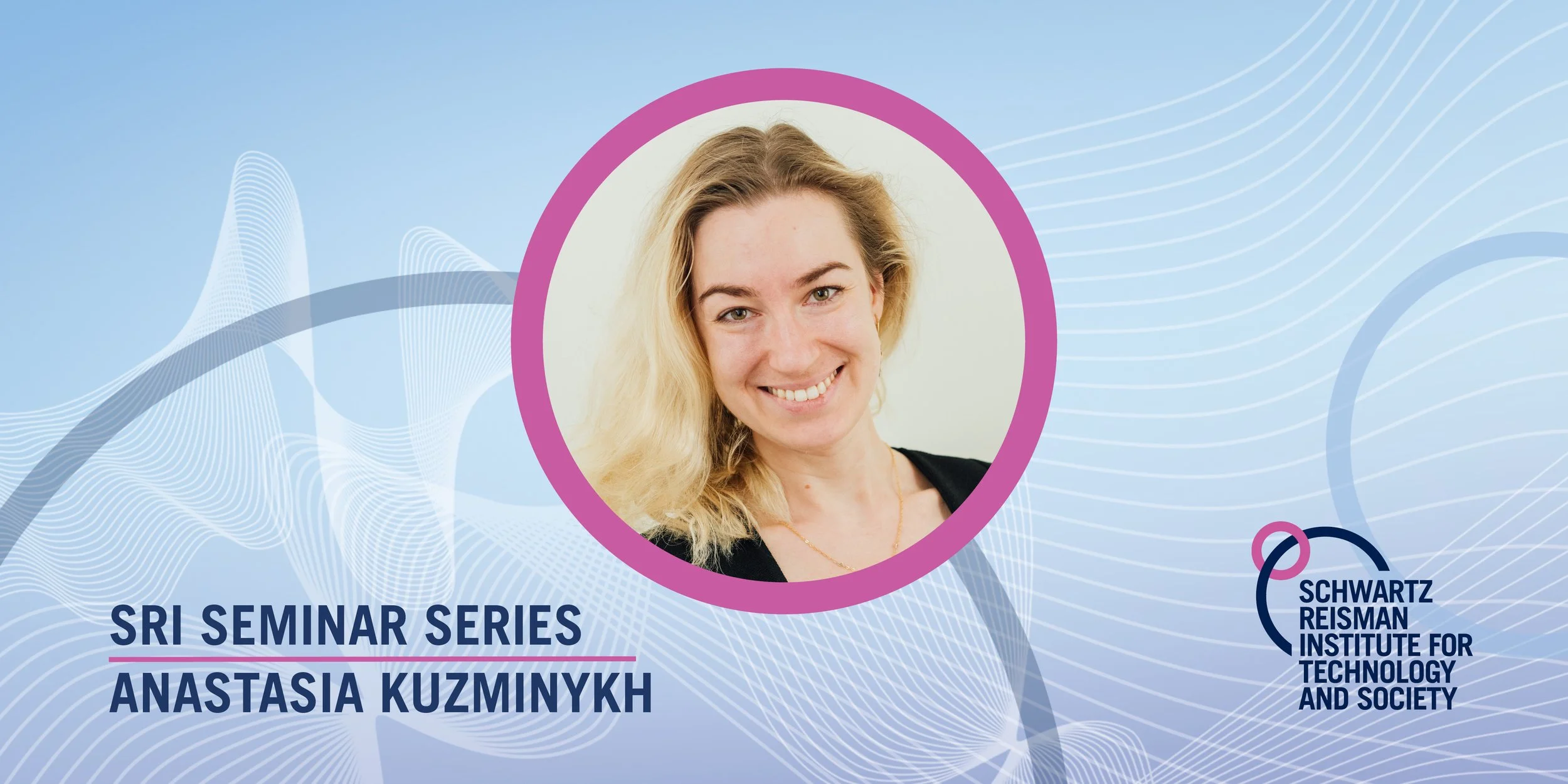
SRI Seminar Series: Anastasia Kuzminykh, “The power of discussion: Designing useful communication with AI agents”
In this talk, Kuzminykh will explore how conversational interfaces with large language models (LLMs) are reshaping how people seek information, make decisions, and engage in creative work. While these systems offer intuitive and accessible interaction, they also raise concerns about user overreliance, prompt formulation challenges, bias amplification, and echo chambers. Drawing from her research with the COoKIE AI group, Kuzminykh examines the design of conversation architectures that can support more ethical, effective, and efficient human–AI collaboration.
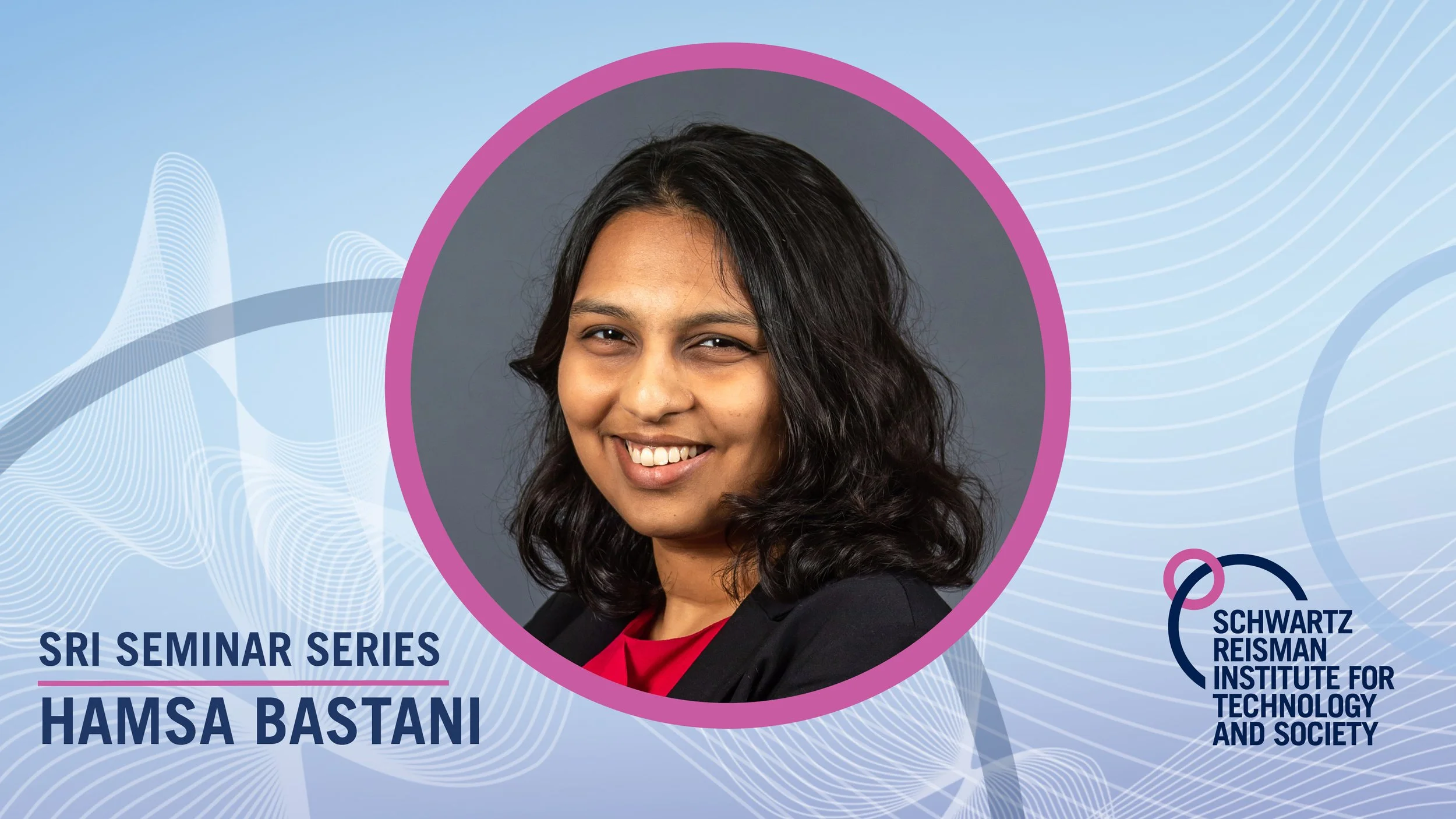
SRI Seminar Series: Hamsa Bastani, “Unpacking the unintended consequences of AI in education”
Can generative AI make us worse learners? Join the Wharton School’s Hamsa Bastani as she presents surprising findings from a large-scale study of AI tutors in high school classrooms—revealing how tool design can make or break learning outcomes, and why guardrails are key to long-term productivity in the age of AI.
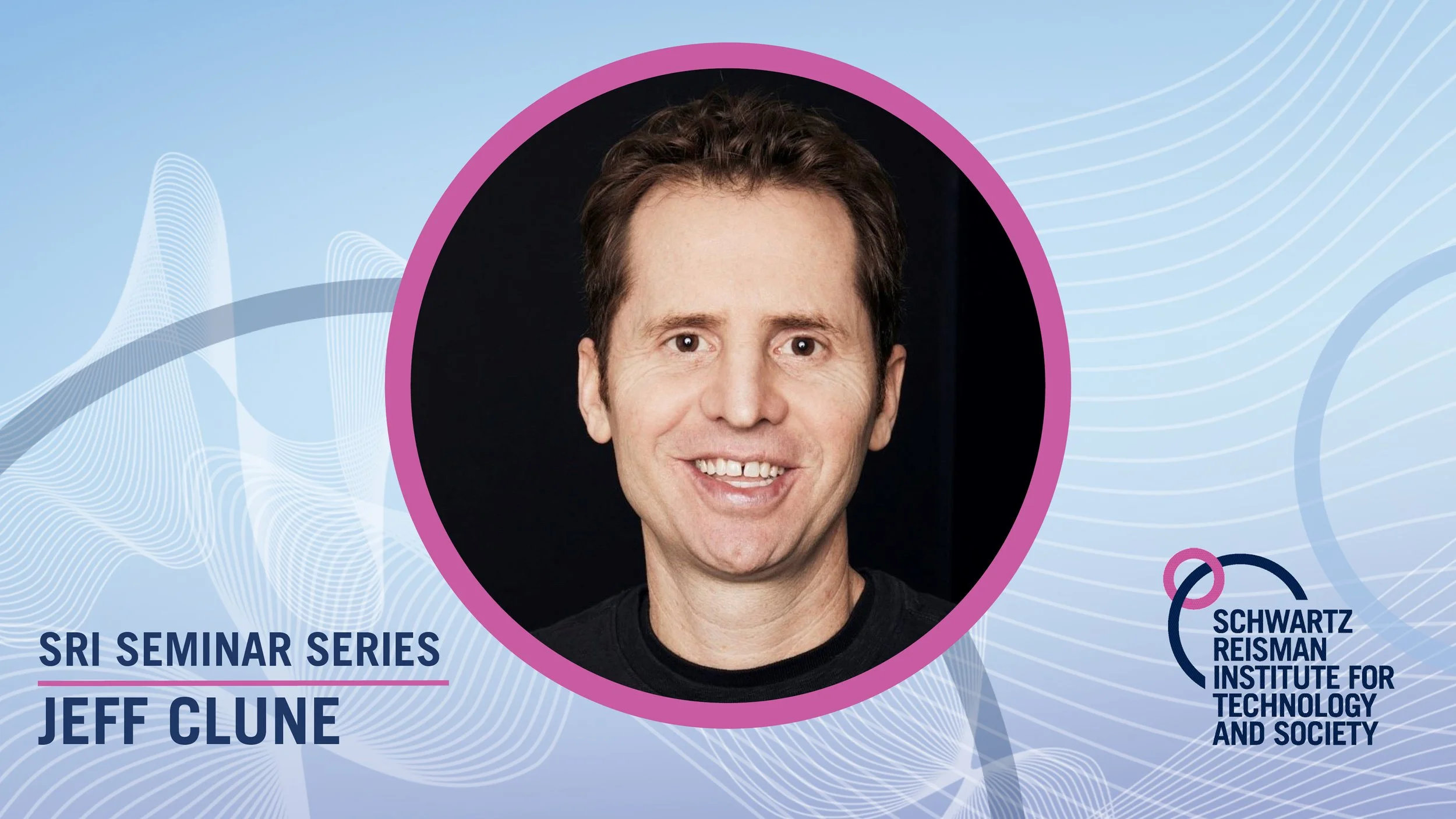
SRI Seminar Series: Jeff Clune, “Open-ended and AI-generating algorithms in the era of foundation models”
How can foundation models drive open-ended innovation and learning? Join the University of British Columbia’s Jeff Clune as he explores groundbreaking advancements in the development of open-ended algorithms and agents that showcasing how these technologies are shaping the future of AI creativity and discovery.
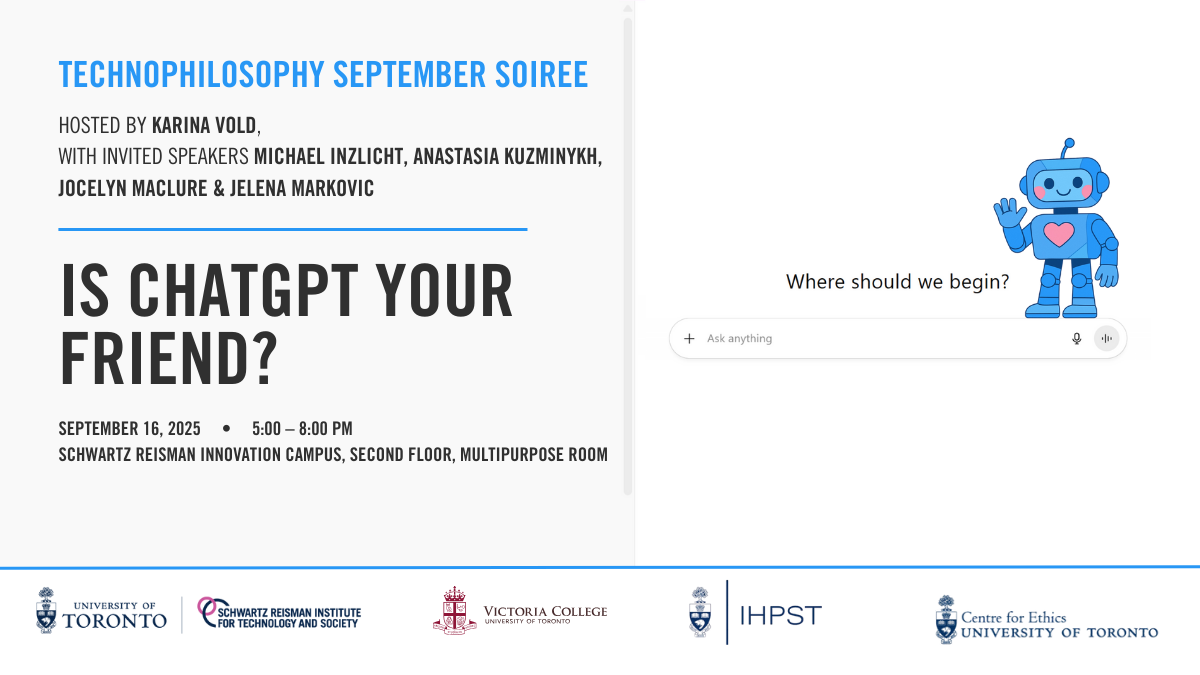
Special event: Technophilosophy September Soiree: Is ChatGPT your friend?
If AI can simulate human emotions and cognitive capacities, like empathy, memory, and kindness, can it become our friend? The September Soiree on Technophilosophy returns for the third time to feature leading thinkers from a variety of disciplines—including psychology, philosophy, computer science, and cognitive science to discuss ethical topics about AI. ‘Technophilosophy’ asks philosophical questions about technology and uses to technology to answer traditional philosophical questions.
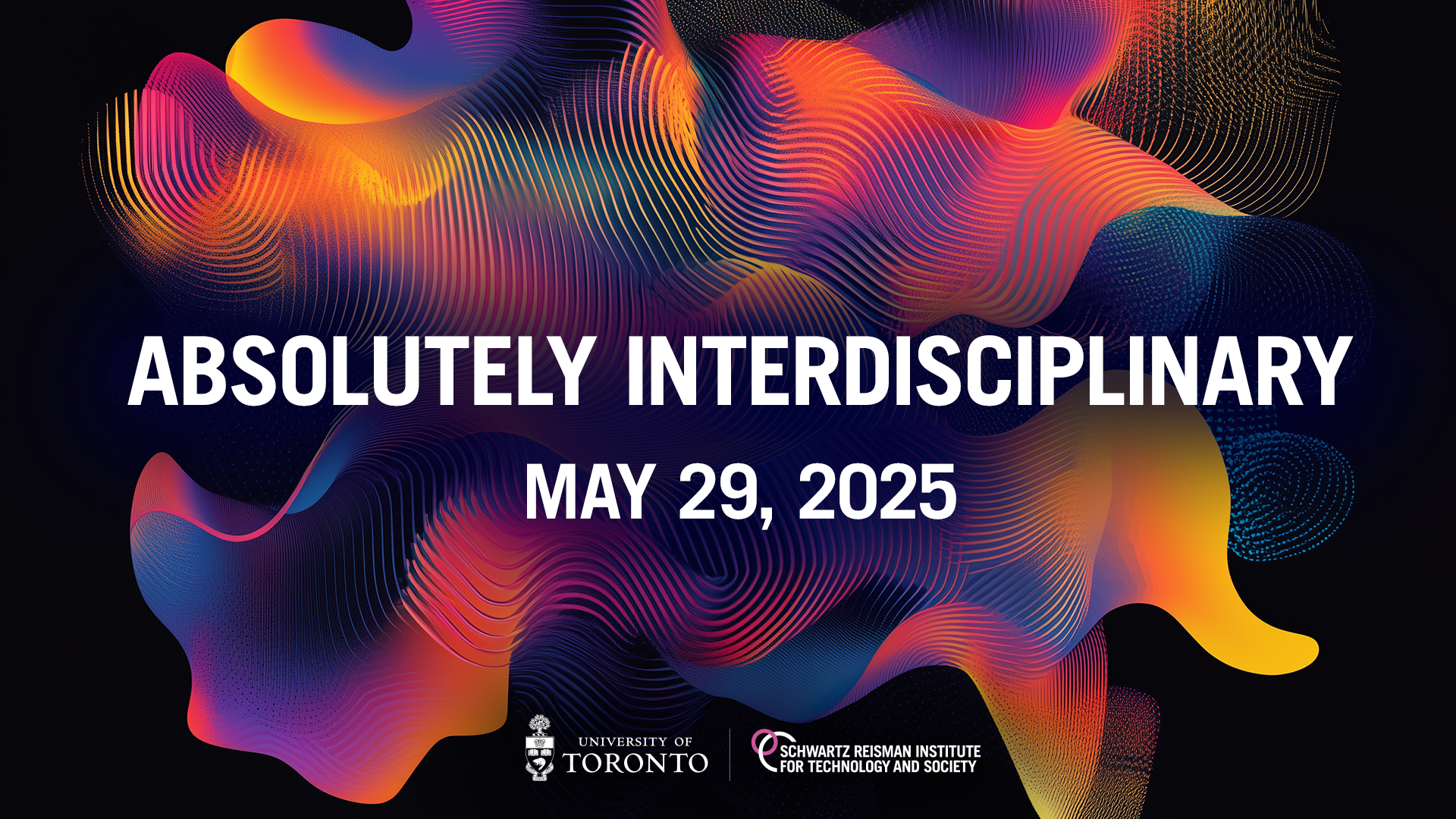
Absolutely Interdisciplinary 2025
The Schwartz Reisman Institute’s annual academic conference Absolutely Interdisciplinary will explore interdisciplinary approaches to AI governance, risk and safety on May 29, 2025, in person at U of T’s Schwartz Reisman Innovation Campus.
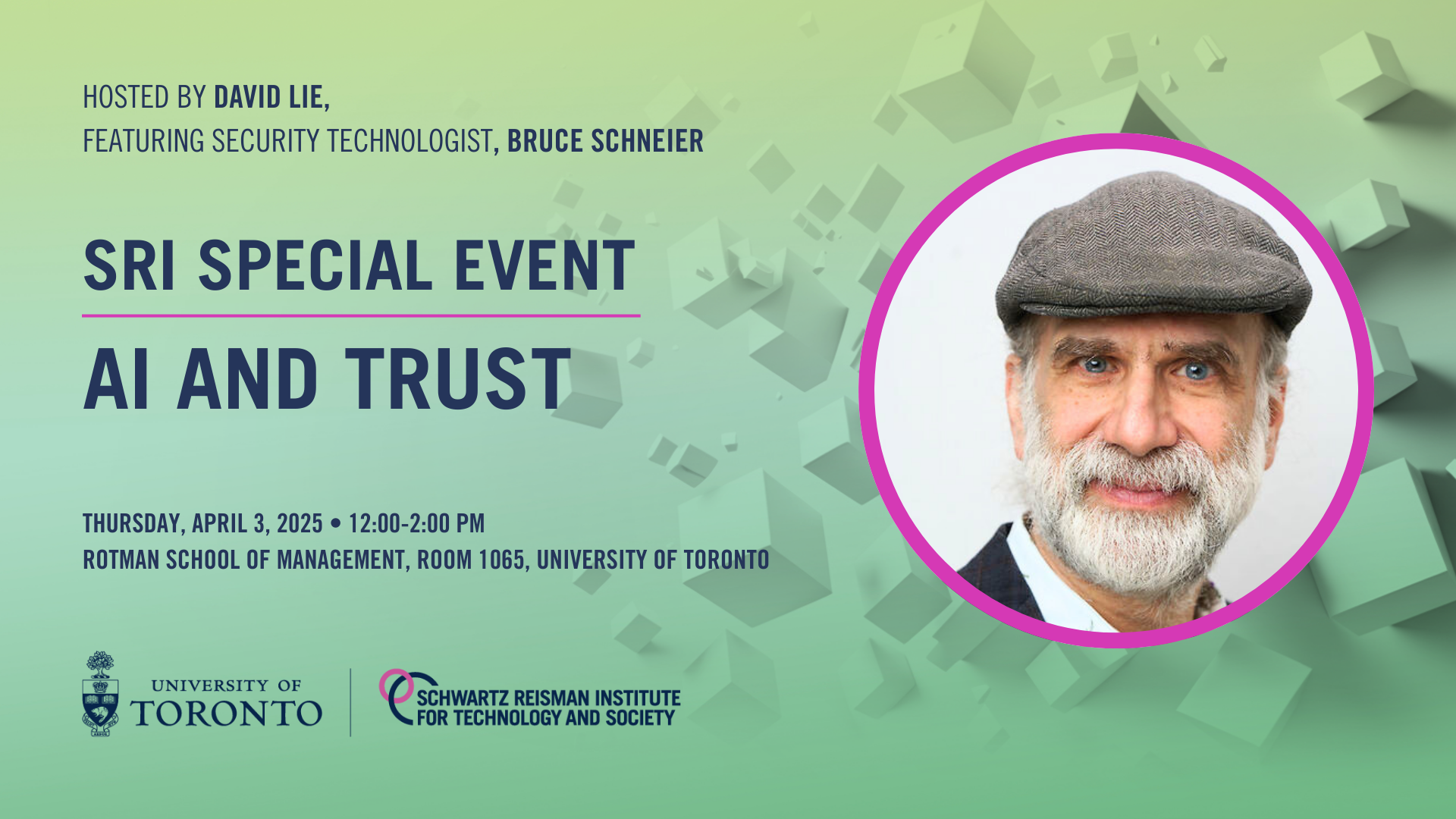
Special event: AI and Trust with Bruce Schneier
In this special in-person event, SRI Director David Lie will host Bruce Schneier, an internationally renowned security technologist, called a “security guru” by The Economist and author of over one dozen books—including his latest, A Hacker’s Mind—as well as hundreds of articles, essays, and academic papers, for a talk on the evolving landscape of trust in the age of artificial intelligence.
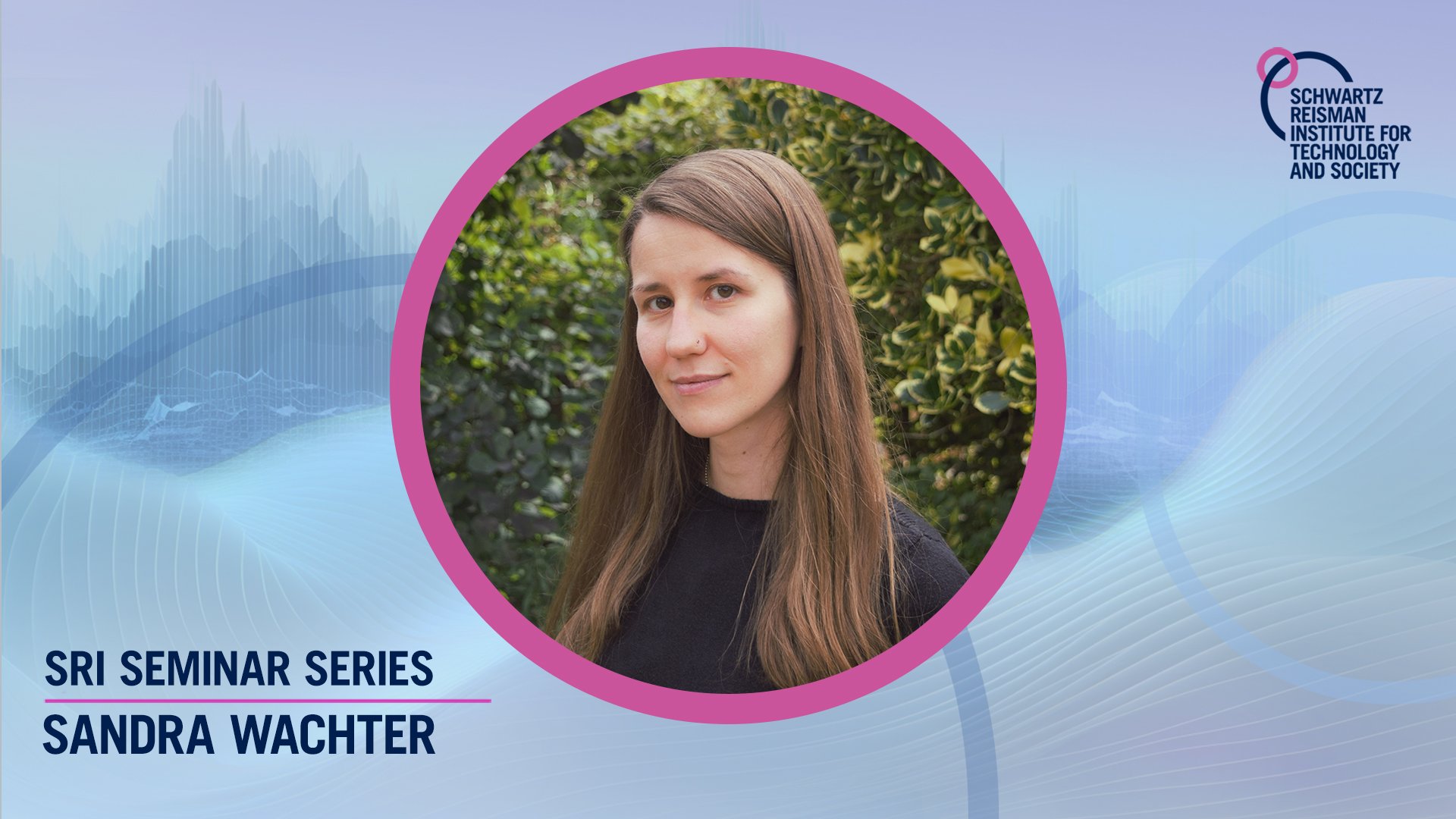
SRI Seminar Series: Sandra Wachter, “Do large language models have a legal duty to tell the truth?”
What is the legal and societal cost of “careless speech” in large language models? Join Sandra Wachter, professor of technology and regulation at the University of Oxford, for an exploration of how AI mistruths threaten knowledge systems and social trust, and how legal frameworks can address these emerging risks.
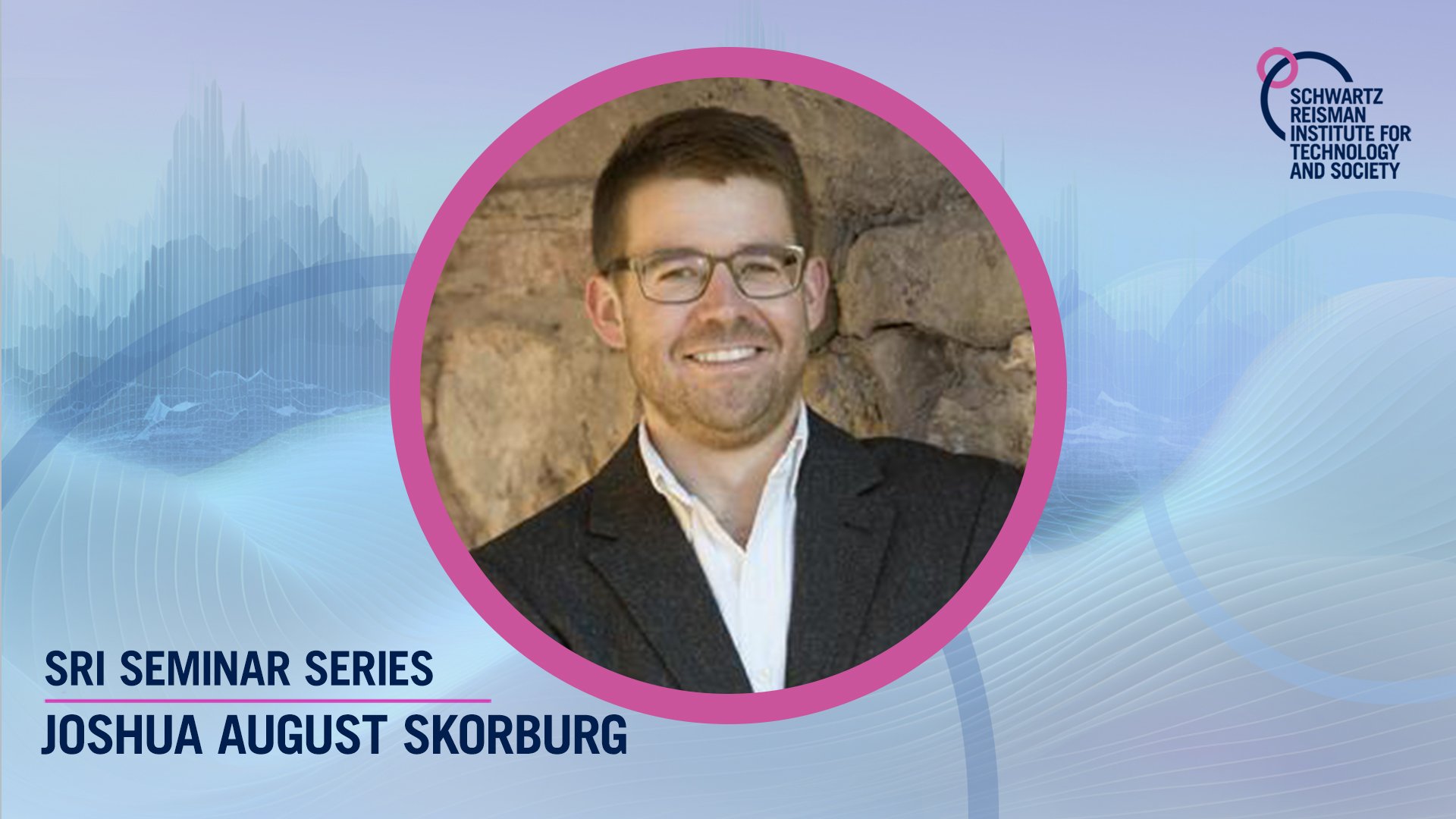
SRI Seminar Series: Joshua August Skorburg, “Decisions, decisions, decisions: A value-based account of the attention economy”
What really drives our attention in the digital age—addiction and compulsion, or our own representations of value? Join the University of Guelph’s Joshua August Skorburg for a talk exploring a new way of understanding the attention economy, showing how digital distractions influence our choices and sense of control.
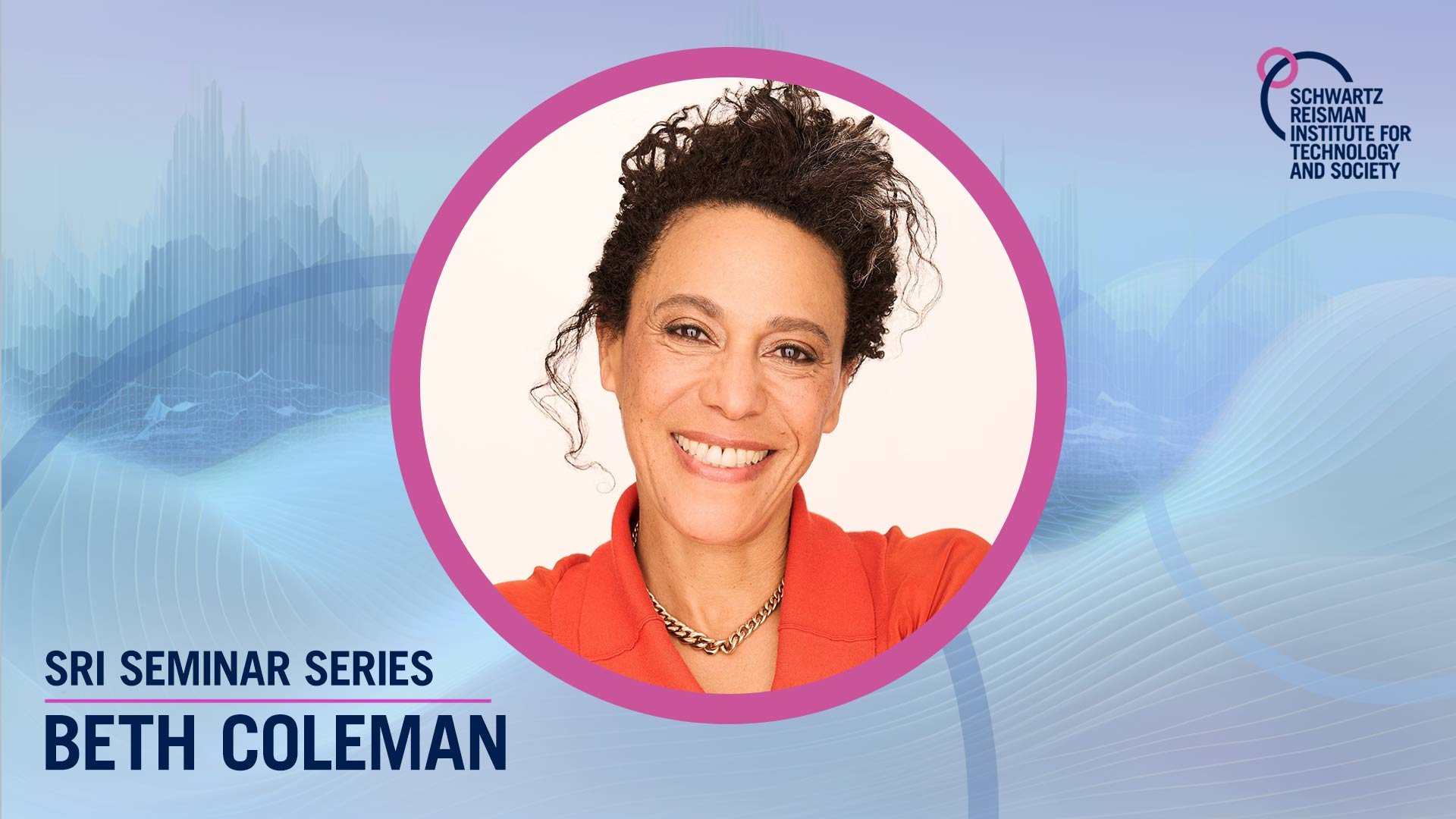
SRI Seminar Series: Beth Coleman, “Building trust in AI: A multi-disciplinary approach to a key paradigm”
Join SRI Research Lead Beth Coleman for a talk exploring the pivotal role of trust in human interactions with machine learning and AI technologies.
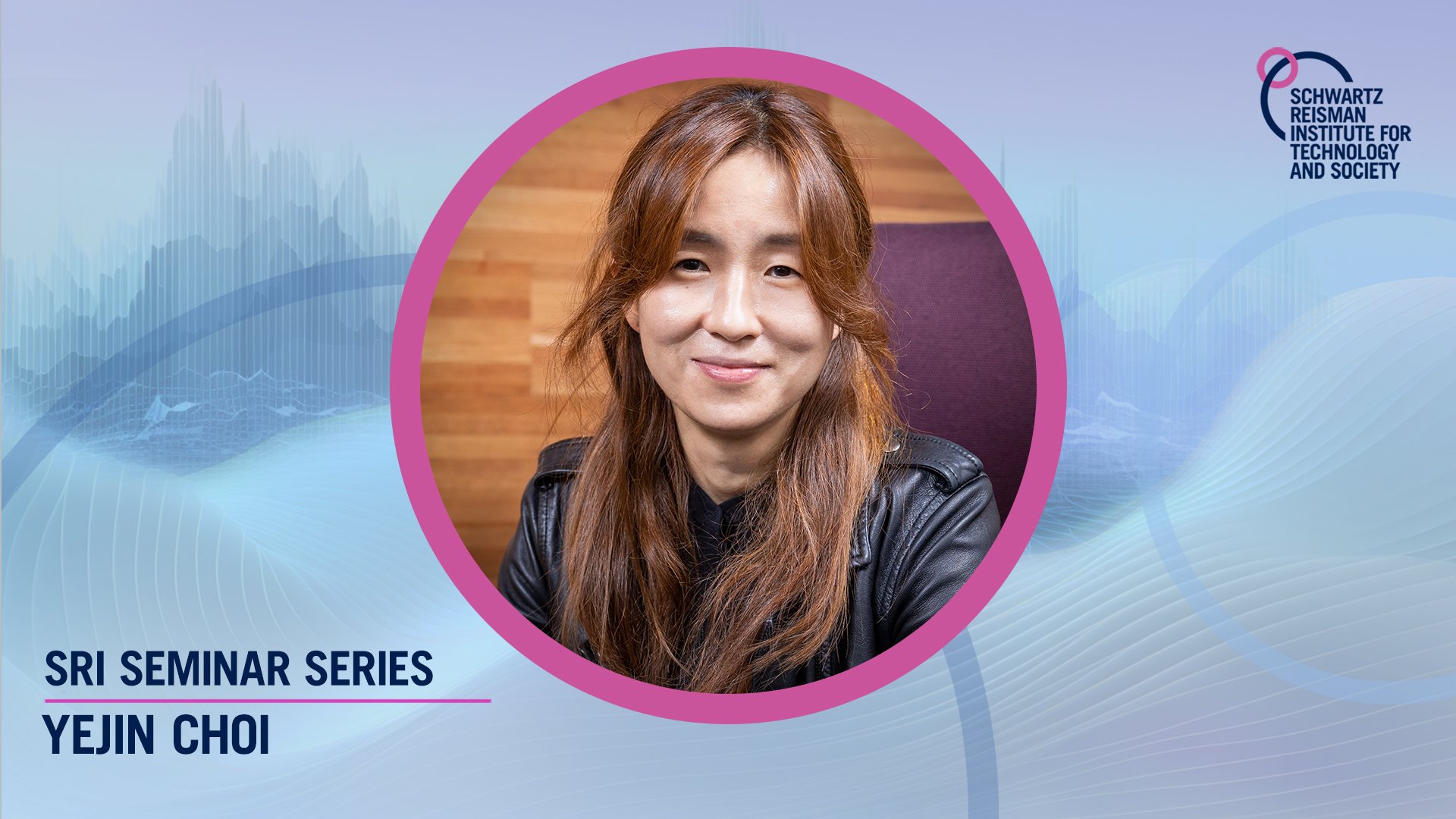
SRI Seminar Series: Yejin Choi,“The enigma of LLMs: On creativity, pluralism, and paradoxes”
Join Yejin Choi, incoming professor in the Department of Computer Science at Stanford University, for an engaging presentation on the design of commonsense and moral reasoning in AI systems.
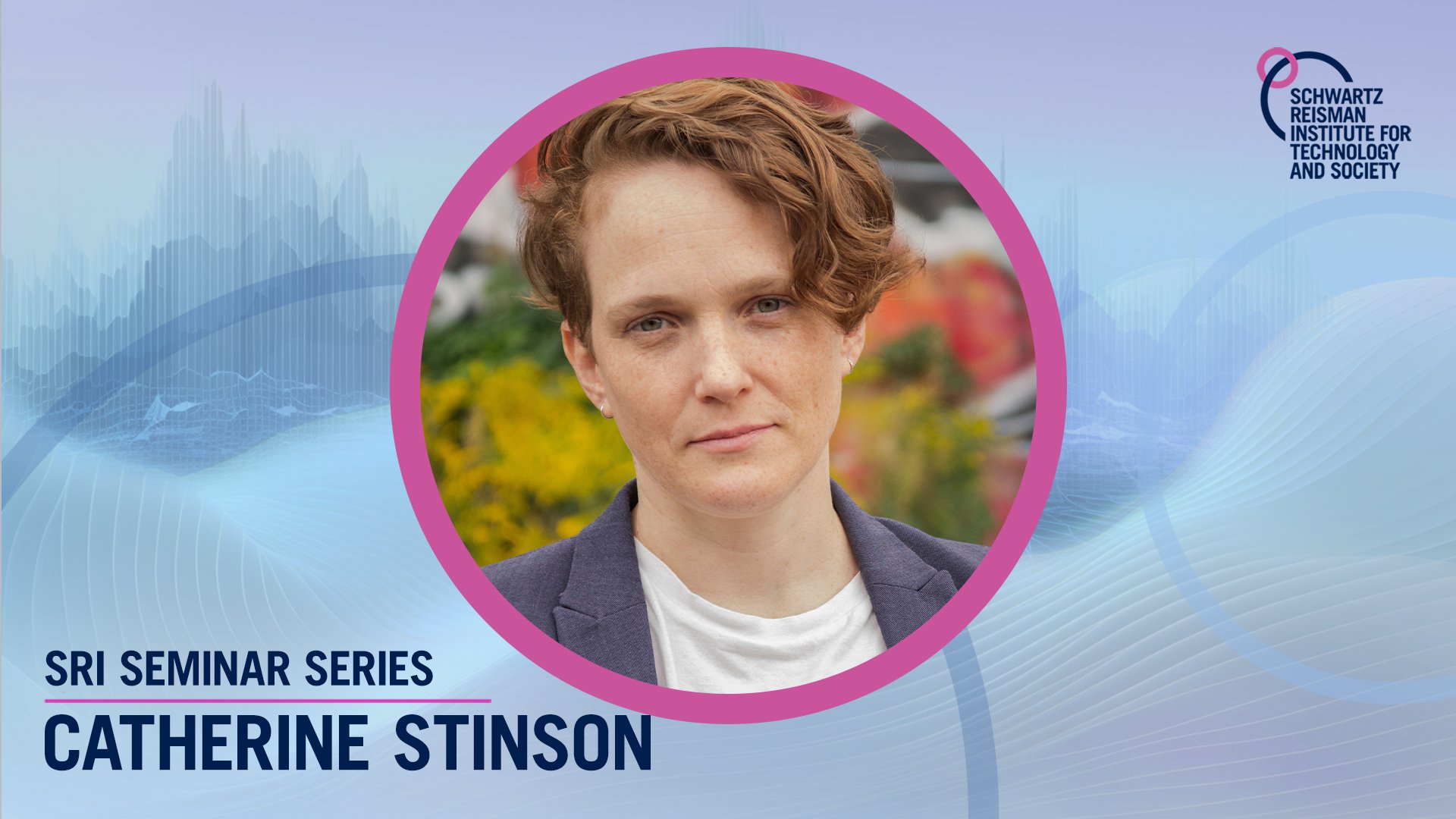
SRI Seminar Series: Catherine Stinson, “Artificial intelligence benchmarks and degenerating research”
Join Catherine Stinson, Queen’s National Scholar in the Philosophical Implications of AI, for a special in-person seminar on the role of benchmark datasets in AI research, co-presented by the Institute for the History and Philosophy of Science and Technology.
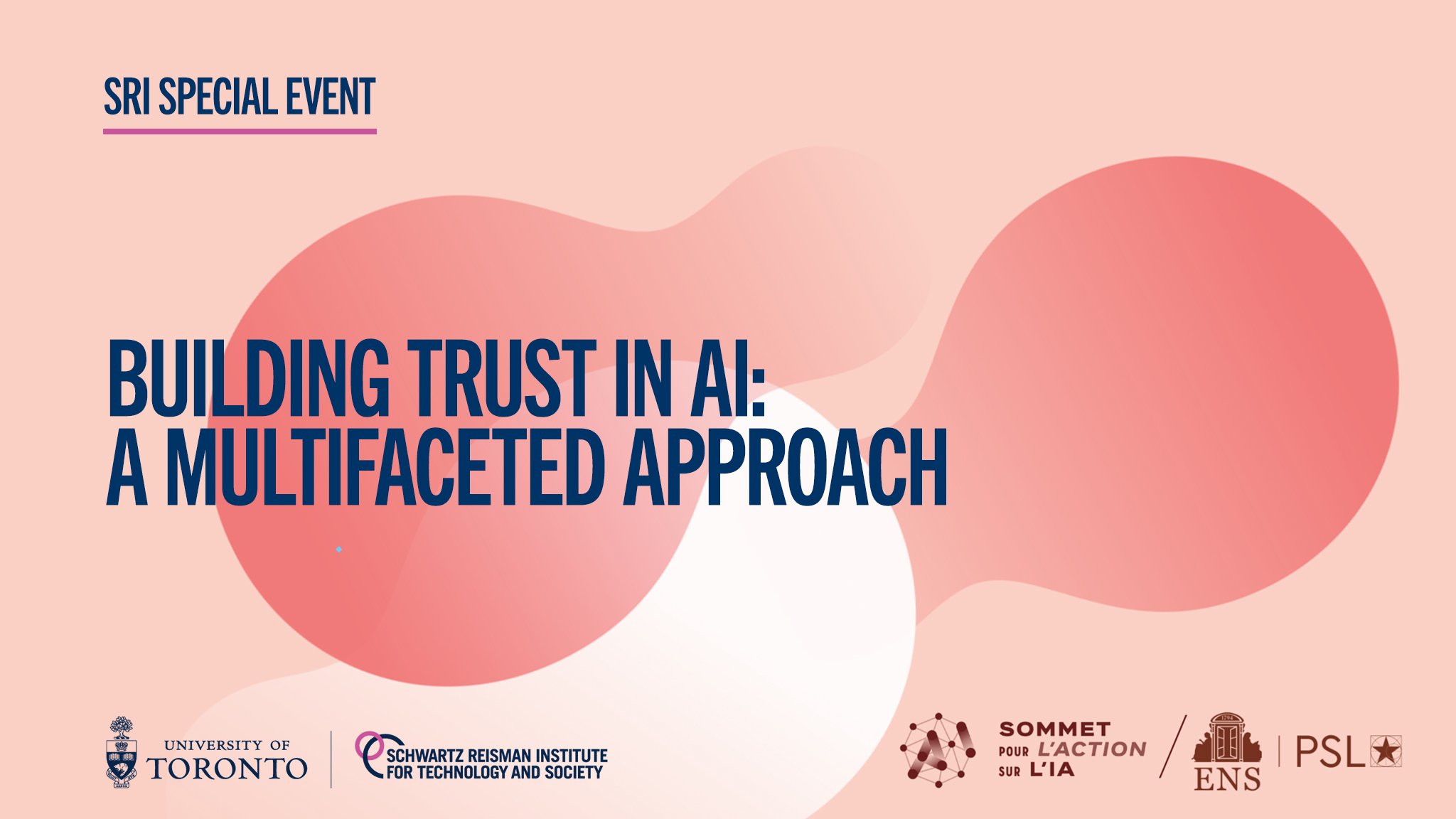
Special event: Building Trust in AI: A Multifaceted Approach
Understanding how trust is built between groups of people, institutions and technologies is essential for thinking about how AI systems can be built to reliably address human needs while mitigating risks. This roundtable convened by the Schwartz Reisman Institute as part of the 2025 AI Action Summit in Paris will explore the contextual and institutional dimensions of trust in AI systems.
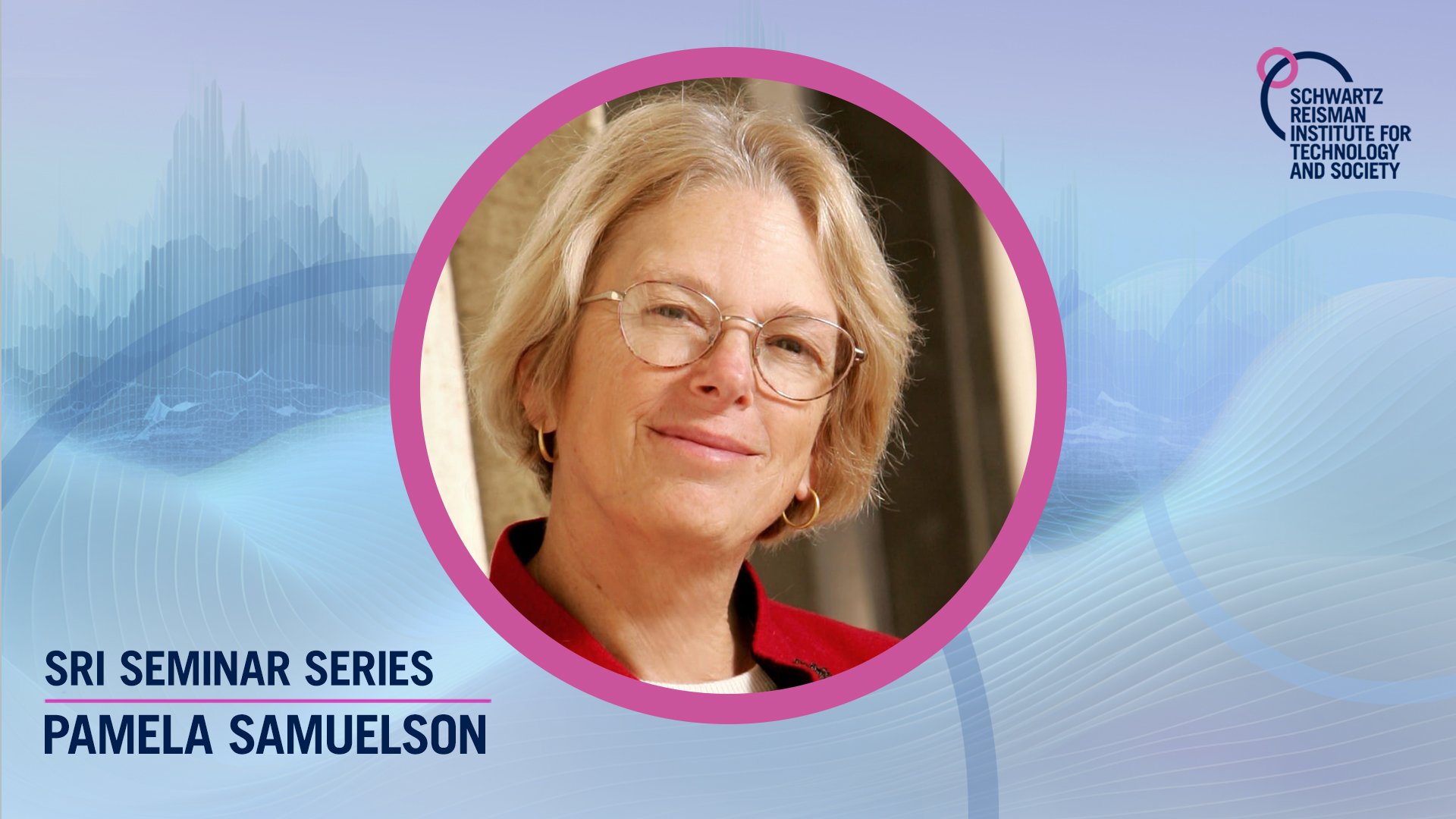
SRI Seminar Series: Pamela Samuelson, “Will copyright derail generative AI technologies?”
Join Pamela Samuelson, distinguished professor of law at UC Berkeley and co-director of the Berkeley Center for Law & Technology, for a talk on the copyright challenges and legal implications posed by generative AI technologies.
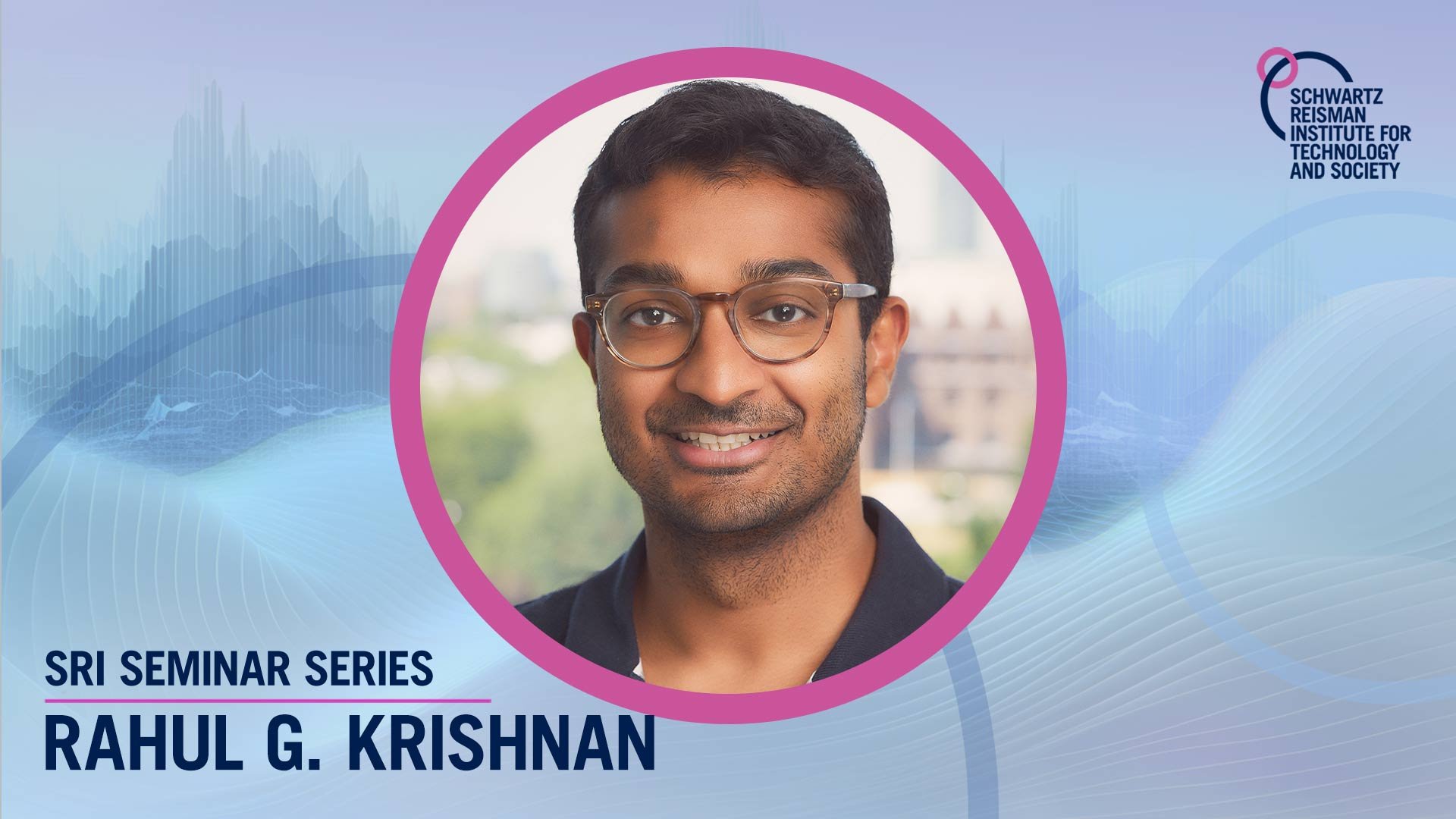
SRI Seminar Series: Rahul G. Krishnan, “From associational to causal predictions with deep learning”
How is machine learning transforming healthcare? Join Rahul G. Krishnan, University of Toronto professor and Canada Research Chair in Computational Medicine, to discover how AI innovations are revolutionizing diagnostics, treatment, and personalized care.

SRI Seminar Series: Virginia Dignum, “Beyond the AI hype: Balancing innovation and social responsibility”
How can we build AI systems that reflect human values and promote social good? Join Virginia Dignum, professor of computer science at Umeå University, for a discussion on the ethical design and governance of artificial intelligence technologies.

SRI Seminar Series: Christopher Summerfield, “The Habermas Machine: Using AI to help people find common ground”
Can AI systems act as an mediator to help groups with differing views find consensus? Join Christopher Summerfield, professor of cognitive neuroscience at the University of Oxford, to explore how AI systems shed light on human decision-making.
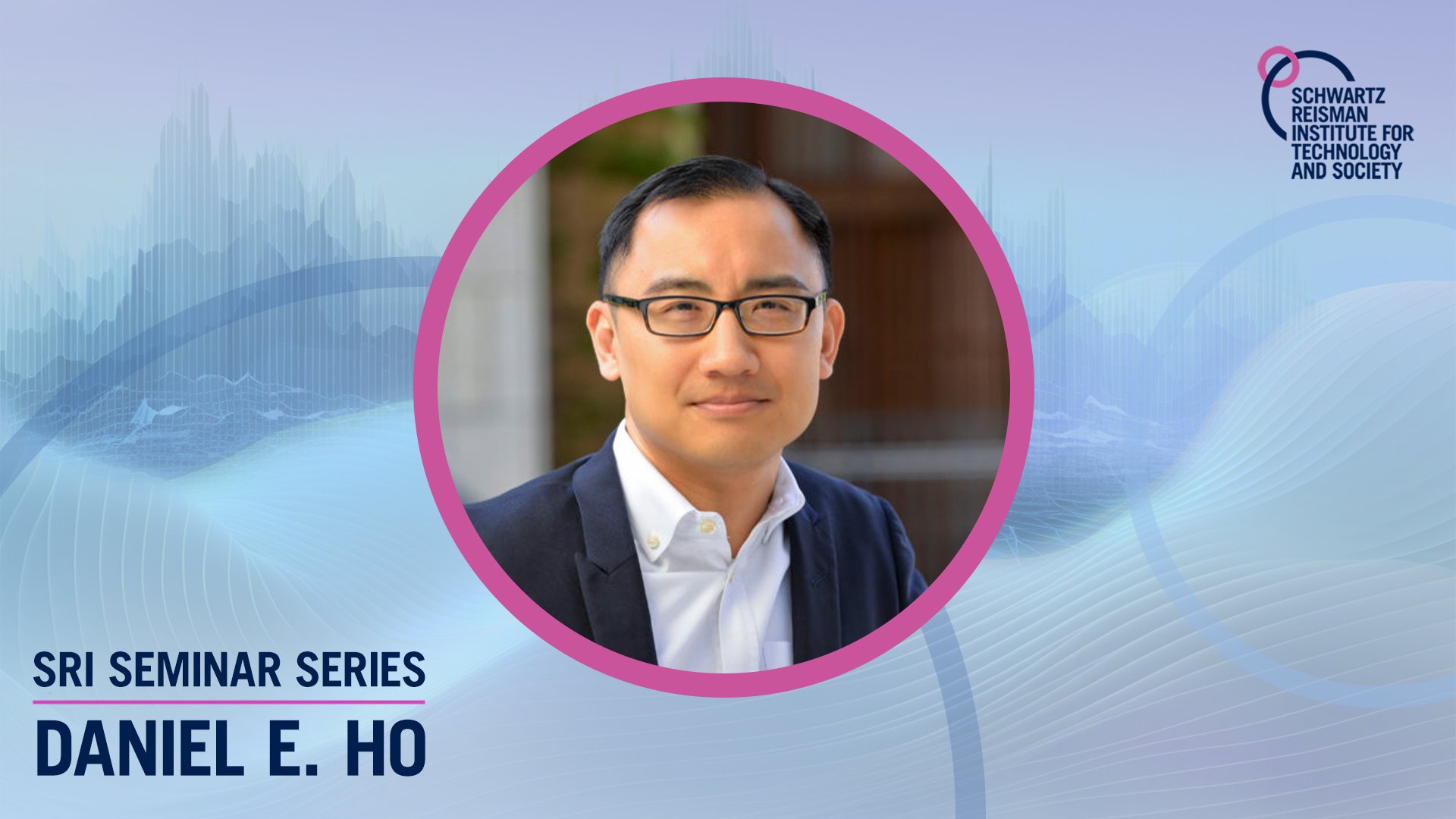
SRI Seminar Series: Daniel E. Ho, “Large legal fictions: Assessing the reliability of AI in legal research”
What emerging risk frameworks and policy considerations for the use of advanced technologies like AI in high-stakes contexts are on the horizon? Join Stanford’s Daniel E. Ho to learn about assessing the reliability of AI in legal research.
